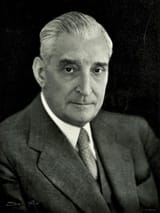>>24571022 (OP)That's the point. There's not some objective distinction between friend and enemy that one should base policy on; but making the distinction of friend from enemy in changing circumstances is the essence of politics itself. Understanding who serves your purpose and who might be dangerous, even if on the surface you might have nothing in common with the former and pretend to be best buddies with the latter, that's the game.
Whatever the group you're *politically* a part of (that is, their power is your power), you want to find enemies that will unite and solidify your group in the pursuit of destroying them, and friends that might help with that. A sovereign is whoever can make the distinction and have it followed; a government that has lost its authority among citizens, for example, is not sovereign anymore, and some revolutionary group might take over.
Why does Trump, for example, like Putin and other authoritarian leaders so much? It's not because they have "dirt" or some other non-issue, but because he has the instinct that whoever practices authoritarianism is his natural friend, and its successes throughout the world against liberalism also solidify Trump's power within America. Because the liberal alternative seems so weak and decrepit.
Another more edgy example is Netanyahu and Hamas. The game of propping them up to divide and conquer the Palestinians was pretty risky, but it has paid off for his power. He was in trouble before the Oct 7 attack, but after that he became an unquestioned sovereign. If Hamas didn't exist Netanyahu would truly have to invent them. Whether Israel suffers for it in the long term is of second-order importance for him politically.









